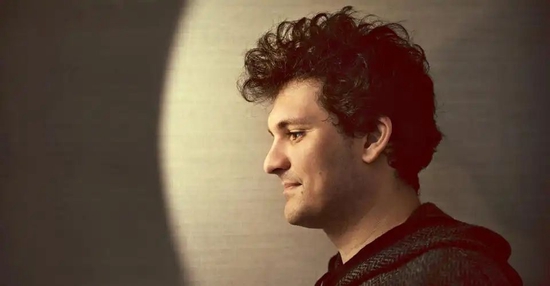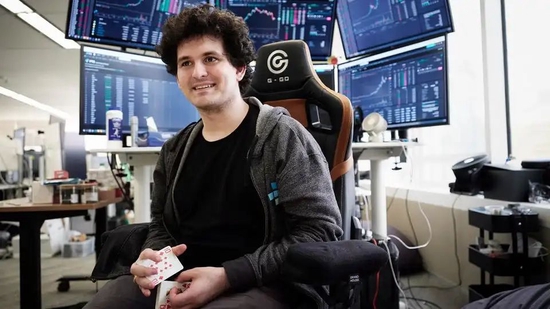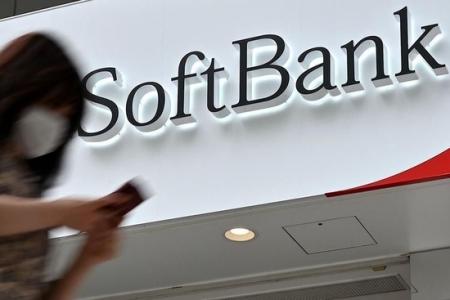your current location is:Home > Finance > depthHomedepth
Will the 30-year-old disappear from the cryptocurrency space?

When FTX CEO Sam Bankman-Fried stepped in to rescue a string of struggling cryptocurrency companies earlier this year, the 30-year-old billionaire was hailed as the next J · P. Morgan (JPMorgan) type of characters.
He has cast himself as the custodian of cryptocurrency even if it hurts his fortune, telling Forbes: "We're willing to make a bad deal if that's what it takes to stabilize the situation and protect customers."
He also said things could be worse in the future, "some of the third-tier exchanges are already secretly insolvent."
Ironically, Sam Bankman-Freed is now the one being rescued. He announced on Tuesday that FTX, which has raised nearly $2 billion since 2019 (most recently in January, bringing its valuation to $32 billion), will be sold to Binance, which is the former 's first investor.
The deal would almost certainly wipe out much of Sam Bankman-Fried's fortune. According to Forbes estimates, his fortune at its peak reached $24 billion based on the value of FTX.
One of the seemingly most stable companies in the industry, FTX has taken a shocking turn that will take time to digest, but once the public gets their heads around the sudden news, they will start to speculate that the former prodigy will take over. What will you do down there.
 Sam Bankman-Fried, credit: VIRGILE SIMON BERTRAND FOR FORBES
Sam Bankman-Fried, credit: VIRGILE SIMON BERTRAND FOR FORBESFirst, Sam Bankman-Fried's focus may be on making sure the deal gets done. This is far from a definite fact, and Binance CEO Changpeng Zhao made it clear in his own trading announcement that nothing is mandatory and Binance can withdraw from trading at any time.
Since FTX itself is a complex maze, there will be many potential obstacles to this deal. It has franchises all over the world. Most recently, it acquired Bithumb, Liquid and BitVo in South Korea, Japan and Canada for an undisclosed sum. FTX also pledged more than $750 million in rescue deals for troubled Voyager and BlockFi.
In addition, the two parties also need to agree on financial terms, which is no simple task considering that most of FTX’s value is tied to its plummeting token, FTT.
Looking ahead, it's not hard to imagine whether Sam Bankman-Fried will remain in crypto for the long haul. In an interview with Forbes in October 2021, he made it clear that he was never a true believer in crypto, he just saw cryptocurrencies as an easy way to make big bucks. Specifically, he endorses a philanthropy code called "effective altruism," a Silicon Valley-style philosophy of philanthropy that has been embraced both by philosopher Peter Singer and in partnership with Facebook. Favored by founder Dustin Moskovitz and others.
While many donors may love causes that have personal meaning, an effective altruist uses data to decide when and where to give. Their decisions are based on impersonal goals, like saving the most lives, or generating the most revenue for every dollar donated. Effective altruism also forces followers to choose specific roles: Sam Bankman-Fried has opted for the "if you make money and donate it" camp, meaning he decides where it goes before handing it over to someone else , first focusing on making as much money as possible.
It was this mindset that led him to venture into the cryptocurrency space in 2017. He realized at the time that he could buy bitcoin in the US and sell it for 30% more in Japan. “I got into crypto without knowing what it was. There seemed to be a lot of good deals out there,” he said. At its peak, his business moved $25 million worth of bitcoin a day. .
When asked if he would leave the industry if he found a better way to make money, such as trading orange juice futures, he didn't hesitate. "Yes, I will."
Compared to most cryptocurrency believers, this view puts him on the other side of the crypto space entirely.
He won't be as interested in writing the original Bitcoin codebase with the possibly pseudonymous Satoshi Nakamoto, like Zcash founder Zooko Wilcox; nor will he be like outgoing Kraken CEO Jesse Powell Fly to Japan to make a last-ditch effort to save the struggling Mt. Gox exchange. Mt. Gox once processed 80% of the world's bitcoin transactions, but 850,000 bitcoins were stolen.
FTX is not intended to be an easy-to-use crypto platform like Coinbase. Initially, it was a specialist exchange for institutional investors specializing in crypto derivatives such as futures and options contracts, which allowed traders to bet on asset prices without direct exposure to the spot market.
This setup is very efficient because there is no physical asset delivery when the contract expires, like a tanker that can be shipped to refineries around the world. For this reason, the trading volume of crypto derivatives has skyrocketed, allowing exchanges such as FTX to make a lot of money. Sam Bankman-Freed said this summer that FTX has been profitable for the past 10 quarters and has more than $1 billion in funding.
Derivatives can play an important role in capital markets because they can help eliminate price differences between exchanges that offer similar assets. Put bluntly, this means derivatives can help ensure bitcoin prices are nearly identical across Asia and North America. But crypto derivatives can be traded on leverage (traders take out loans to increase the size of their bets), so when the market turns, it can trigger massive liquidations, and FTX was once leveraged as high as 100x.
When asked why, Sam Bankman-Fried replied: "Our users want, and a lot of people are threatening that if we don't have this feature, they won't use the platform."
Due to multiple liquidations and public protests, FTX has cut the amount of leverage users can afford. “I don’t want to claim that this is important for efficient markets because I don’t think so. No level of leverage that you hold can be absolutely critical to efficient markets, and I don’t think it’s particularly important for the health of crypto markets or advantageous."
Despite today’s turbulent markets — the FTX token that sparked the turmoil lost about 74% of its value in the past two days — Sam Bankman-Fried is still a billionaire with a fortune. But now he has a choice: he can try to stick around in crypto, or he can work for his friend, rival or foe Changpeng Zhao.
He remains the CEO of FTX America, a much smaller subsidiary of FTX. It is also possible that regulators and law enforcement officials will investigate the FTX transaction, rendering some of the aforementioned issues moot. No one is currently claiming fraud, but cryptocurrencies have been a punching bag for regulators at the height of the industry's development, and with the debacle, it is certain that governments will investigate.
Just recently, the Republican leader of the House Financial Services Committee, Patrick McHenry of North Carolina, issued a statement expressing his condolences over the Binance-FTX transaction and Look forward to "learning more from both parties in the coming days about the incident and the steps they will take to protect customers during the transition."
Sam Bankman-Fried can also convert what he has left into cash to donate to charities that share his ideals. But that probably won't happen, because during FTX's heyday, he would have had many opportunities to donate, but instead chose to bet that his wealth could become even more.
Ironically, he paid $2.3 billion for Binance’s FTX stake in July 2021. If he hadn't, maybe he'd be richer now and the war of words between Binance and FTX that led to the downfall of Sam Bankman-Fried wouldn't have happened.
It's entirely possible that Sam Bankman-Freed will stay in the cryptocurrency space and try to rebuild his career, but unlike true believers, that's not a given. In September 2021, he told Forbes: “There’s a big world out there. We shouldn’t assume that cryptocurrencies will always be the most fertile field.”
Previous:Is Tesla in trouble? Autopilot's fake marketing under investigation | Silicon Valley Watch
Next:Apologizing for Twitter while laying off 80% of employees Musk wants to "rebuild" Twitter?
related articles
Article Comments (0)
- This article has not received comments yet, hurry up and grab the first frame~












